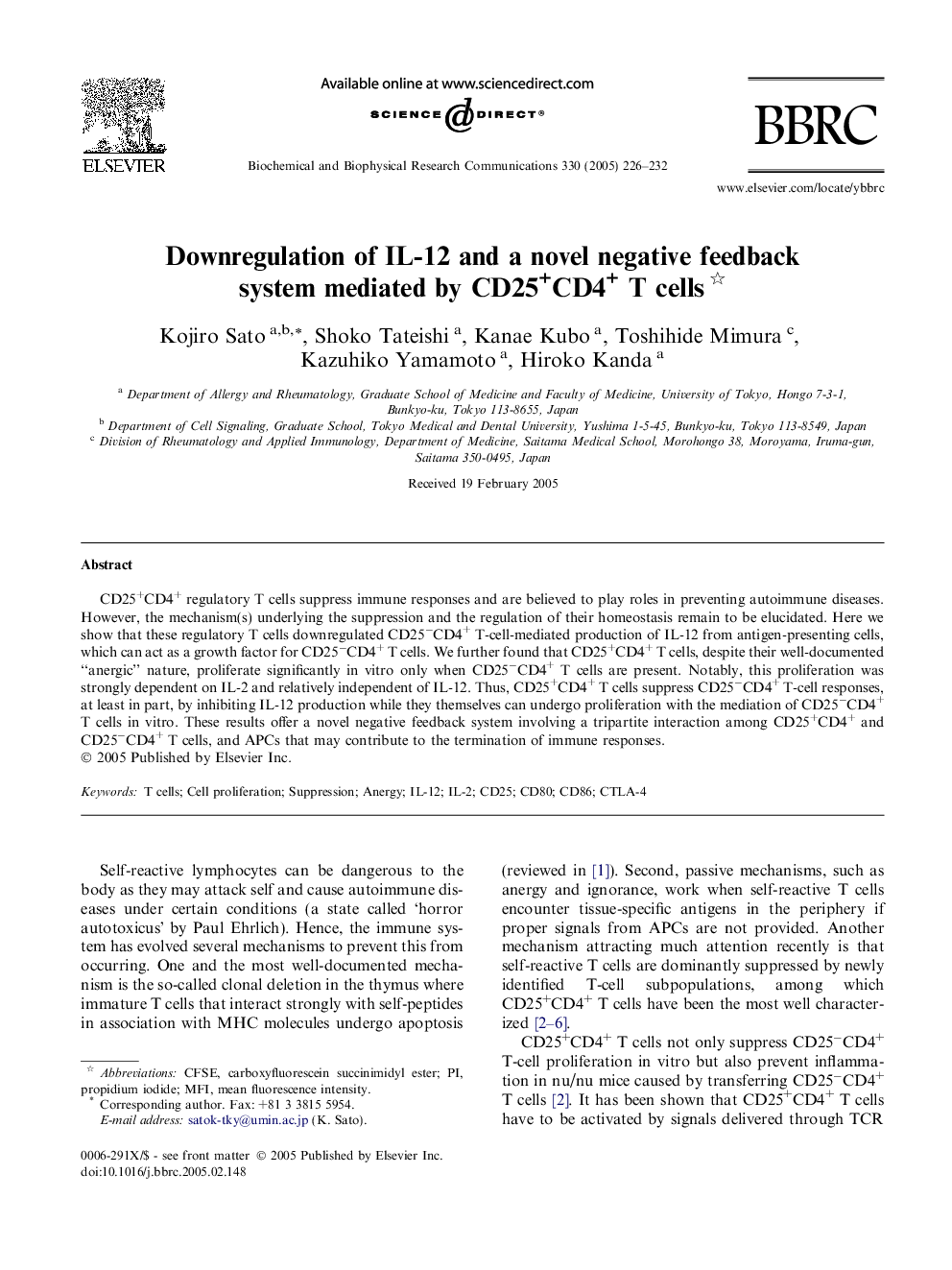| Article ID | Journal | Published Year | Pages | File Type |
|---|---|---|---|---|
| 10770871 | Biochemical and Biophysical Research Communications | 2005 | 7 Pages |
Abstract
CD25+CD4+ regulatory T cells suppress immune responses and are believed to play roles in preventing autoimmune diseases. However, the mechanism(s) underlying the suppression and the regulation of their homeostasis remain to be elucidated. Here we show that these regulatory T cells downregulated CD25âCD4+ T-cell-mediated production of IL-12 from antigen-presenting cells, which can act as a growth factor for CD25âCD4+ T cells. We further found that CD25+CD4+ T cells, despite their well-documented “anergic” nature, proliferate significantly in vitro only when CD25âCD4+ T cells are present. Notably, this proliferation was strongly dependent on IL-2 and relatively independent of IL-12. Thus, CD25+CD4+ T cells suppress CD25âCD4+ T-cell responses, at least in part, by inhibiting IL-12 production while they themselves can undergo proliferation with the mediation of CD25âCD4+ T cells in vitro. These results offer a novel negative feedback system involving a tripartite interaction among CD25+CD4+ and CD25âCD4+ T cells, and APCs that may contribute to the termination of immune responses.
Related Topics
Life Sciences
Biochemistry, Genetics and Molecular Biology
Biochemistry
Authors
Kojiro Sato, Shoko Tateishi, Kanae Kubo, Toshihide Mimura, Kazuhiko Yamamoto, Hiroko Kanda,
